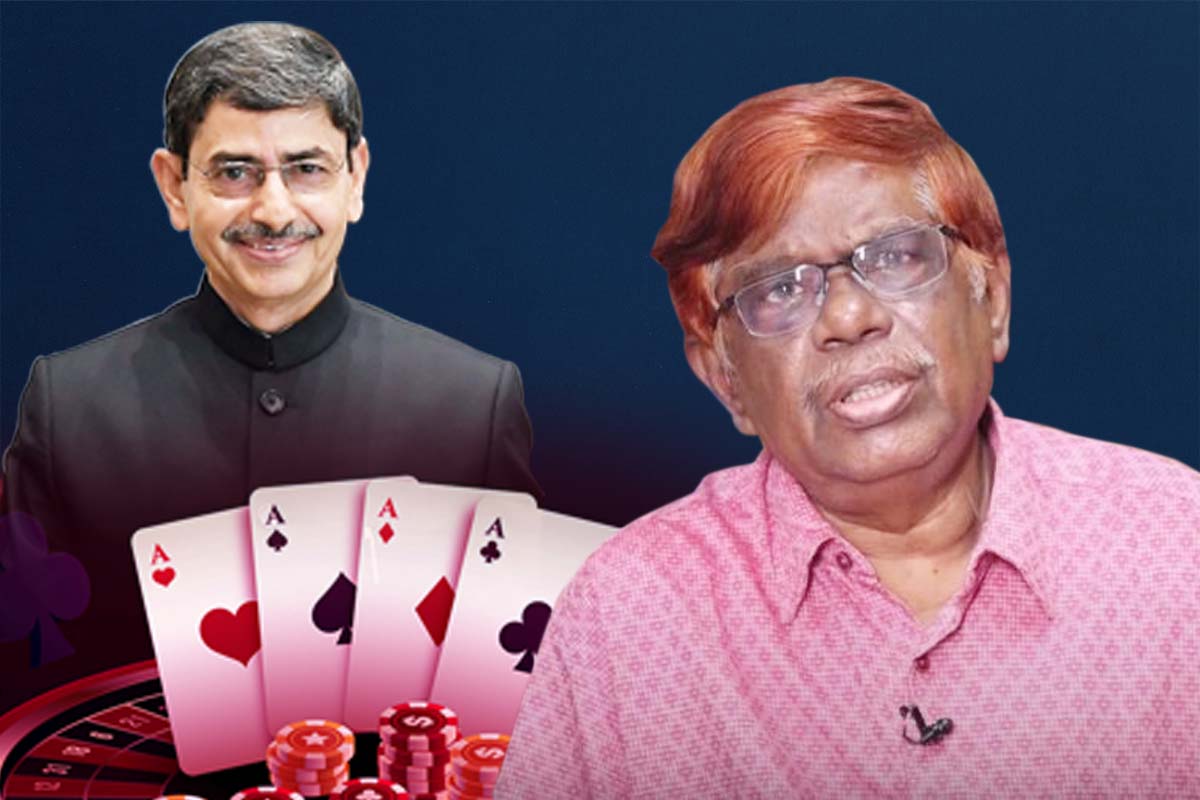
In an exclusive interview with TNM, Justice Chandru said that the powerful online gaming lobby had reached out to various members of the government appointed committee, seemingly willing to go to any extent to prevent a ban.
At a time when political parties in Tamil Nadu, including the ruling Dravida Munnetra Kazhagam (DMK), have questioned the motive behind Governor RN Ravi returning the bill prohibiting online gambling, retired Madras High Court judge Justice K Chandru told TNM that there were attempts made by the online gaming lobby to allegedly “influence” the TN government appointed committee led by him to look into the adverse effects of virtual gaming.
In an exclusive interview with TNM, Justice Chandru said that the powerful online gaming lobby had reached out to various members of the government appointed committee, seemingly willing to go to any extent to prevent a ban. “The keen interest they (online gambling lobby) showed even when our committee was studying the issue and the way they tried to reach out to some of the members – which we stopped – it looks as if they have a greater stake in the game. Therefore, they will go to any extent to keep the games from being prohibited,” he added.
The Tamil Nadu government had set up a four-member committee led by Justice Chandru on June 9, 2022 to study the adverse impact of online gambling. The committee submitted its report to the Chief Minister on June 27, 2022, recommending a ban on online gaming by promulgating an ordinance. The recommendations were accepted by the Tamil Nadu cabinet, and an ordinance was promulgated with the approval of Governor RN Ravi to ban online gambling. In October 2022, the state Assembly passed the Tamil Nadu Prohibition of Online Gambling and Regulation of Online Games Bill, 2022, and sent it to the Governor’s office for his assent. Four months later, the Governor returned the bill, questioning the state’s legislative competence to pass such a bill.
Justice Chandru said that the Governor returning the bill after giving assent to the ordinance has raised several questions, adding that there is more to it than meets the eye. “The Governor gave his assent to the ordinance, and when the same document with the same text is presented to him in the form of a bill, what is preventing him from approving it? In these four months, he has studied the bill, got legal opinion, and raised some issues. Why did he not do this at the time of the ordinance? This is the question that comes to my mind. A man who signs with full knowledge, the power he exercises with regard to an ordinance and the power he exercises to give assent for a bill is identical. The bona fide comes because you approve the ‘A’ text but when it comes as ‘B’ text, you say no.” Therefore, there was something else going on, he indicated.
Calling the meeting between the Governor and representatives of the e-gaming federation “improper”, Justice Chandru said that the Governor cannot consult with companies that have already been heard by the Government of Tamil Nadu. “In the case of online rummy, there seems to be something more because of these delays. In the meantime, he met with representatives from various online rummy companies. It is very improper because he may consult even the Attorney General of India, nobody can stop him, but not online gambling companies. These companies were already heard by the government. When we gave our report, the online company sent a representation that they wanted to be heard, but we said there was nothing to be heard; we didn’t hear the offenders. That was our stand. But the government did not want to take the same stand, they gave a notice to hear public opinion,” Chandru said.
On Thursday, March 9, the Tamil Nadu cabinet decided to table the bill once again in the Assembly and send it to Governor Ravi for his assent. According to Article 200 of the Constitution, when a bill is sent for the second time, the Governor will have to provide his assent.